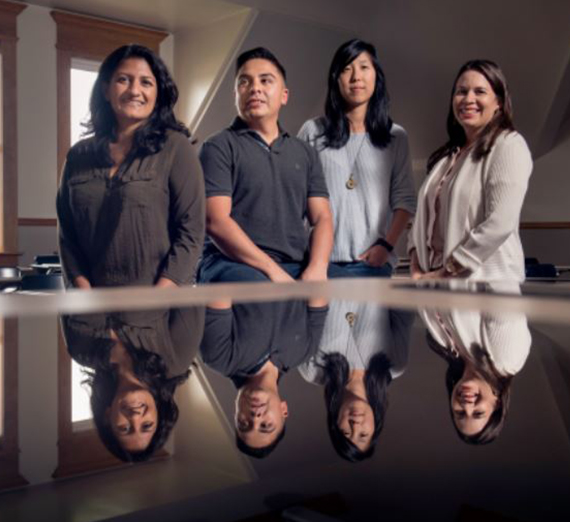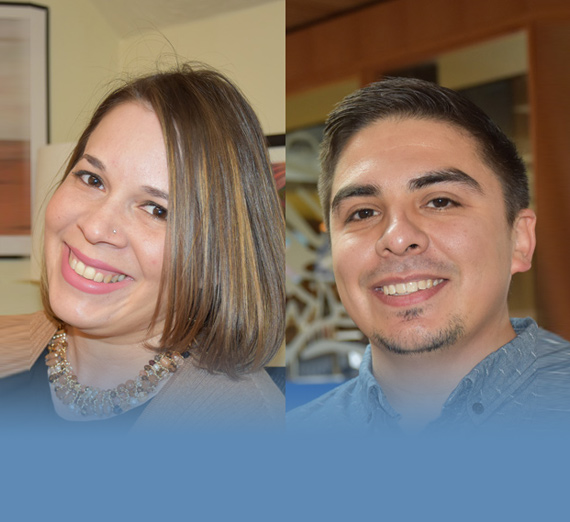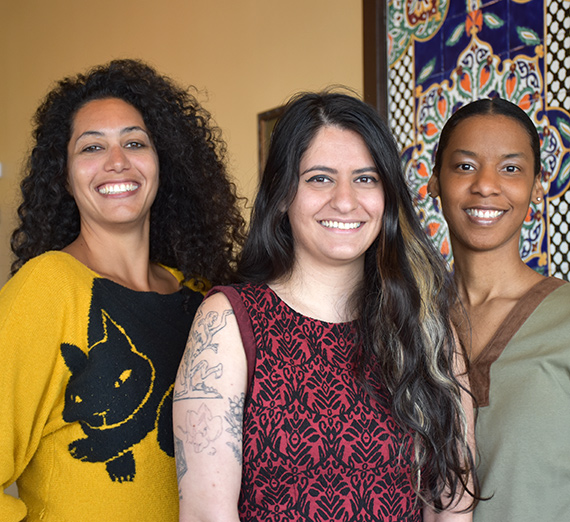Our Purpose
Gonzaga University aims for 100% retention of scholars that meet the needs of the University.
Postdoctoral fellows from groups underrepresented among higher education faculty spend two years at Gonzaga, subject to reappointment, fulfilling departmental teaching needs, bringing new perspectives and current knowledge of their fields, and participating in campus life.
The fellows receive mentoring and support that will help them better understand the nature of a career at a Jesuit, mission-driven, liberal arts teaching institution to assist their transition to a teaching institution with a strong mission and orientation towards social justice.
Program Goals
The program will support the University in meeting its mission goal of fostering "a mature commitment to the dignity of the human person, social justice, diversity, intercultural competence, [and] global engagement," by meeting the following objectives.
Many studies’ findings suggest that increasing faculty diversity increases the diversity of the student body. These studies also found an increased success among groups that have been traditionally underrepresented on campus. Moreover, diverse faculty can help improve persistence and retention rates among underrepresented minority students.
- Increasing the diversity of the applicant pool for tenured faculty positions.
- Increasing retention of faculty from underrepresented groups by demonstrating an institutional commitment to diversity and inclusion, as well as creating resources and environments needed to support the interests of diverse faculty.
- Increasing the number of students from underrepresented groups applying to Gonzaga University.
- Forging a long-term mutually beneficial partnership with PhD-granting institutions from the western regional area and nationally known colleges and universities, including Hispanic Serving Institutions (HSI), Historically Black Colleges and Universities (HBCUs), and Tribal Colleges.
- Fostering recognition of Gonzaga University as a university dedicated to excellence in teaching
- Strengthening Gonzaga’s commitment to excellence, diversity, equity, and inclusion.
Program Structure
The program is a teaching fellowship. Academic departments from the individual Schools and the College apply to host a postdoctoral fellow. The departments selected to host a candidate will participate in recruiting, evaluating, interviewing, and selecting the fellow from a competitive pool. Host departments are required to follow their usual practice for searching, selecting, and appointing fixed term faculty candidates. A tenured faculty member of each hosting department shall be identified to serve as a mentor to the fellow.
- To show commitment to the fellow, the program is for two-years. URM postdoc fellows are appointed for an academic year. The initial contract will be for one-year; a second-year contract is contingent upon reappointment. Depending on program needs there is a possibility of renewal for a third year.
- Fellows will teach a 1-3 or 2-2 load of mixed upper and lower division courses.
- A reduced teaching load is necessary to:
- Allow time to focus on teaching development.
- Allow time to focus on research and citizenship.
- Fellows will have opportunities to present their scholarship once in their first year in a public forum appropriate for the discipline, and as decided on by the department and fellow. In their second year, fellows will have the opportunity to engage with the campus community in co-curricular, interdisciplinary, or scholarly presentations to expand and deepen their networks and relationships within the broader campus community.
- In their first year, fellows will be matched with a mentor in the hosting department. Ideally, mentors would be tenured and sensitive to the specific and different needs of underrepresented minority faculty and faculty of color regarding mentoring and legal issues.
- Fellows are expected to participate in a Course Design Institute organized by the CTA ideally between their second and third semester at Gonzaga, or during their second year based on availability of these programs, faculty interest and mentors’ feedback, this is conditional on reappointment. Fellows are also expected to participate in the various CTA support programs based on mentors' feedback and teaching evaluations.
- Fellows and mentors are required to have at minimum once a month meeting to check-in and assess progress.
- Fellows will receive teaching observations and an observation report that focuses on teaching development rather than teaching evaluation at least once a semester.
- Fellows will have the opportunity to negotiate their second or third postdoctoral fellowship year.
- Fellows may request credit for time served if they are selected for a tenure-track position. A one-year credit toward tenure is allowed if the fellow has served for three years in the fellowship.
- Department mentors will receive professional development training focused on working with and supporting underrepresented minority postdoctoral fellows provided by the postdoctoral fellowship program, and professional training on mentoring and supporting faculty of color at Gonzaga through a CTA workshop.




